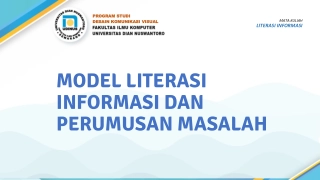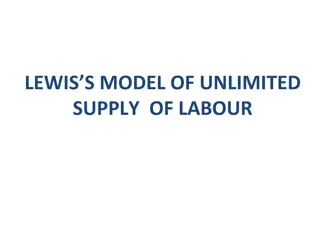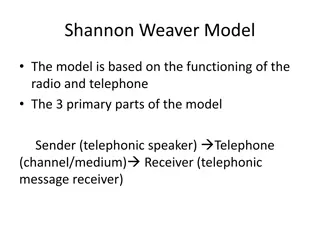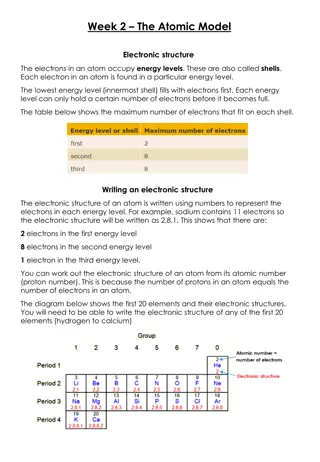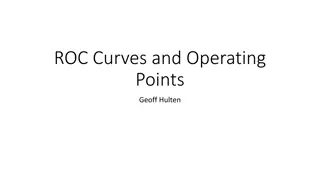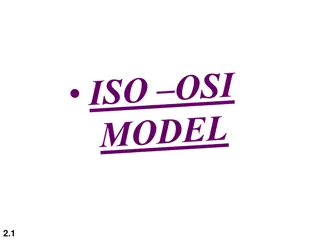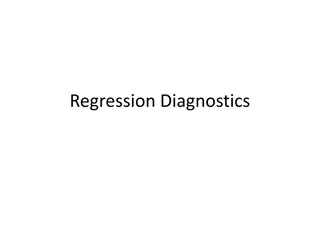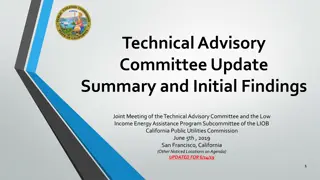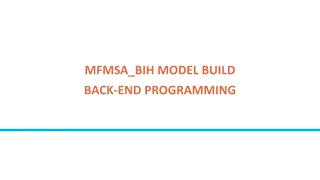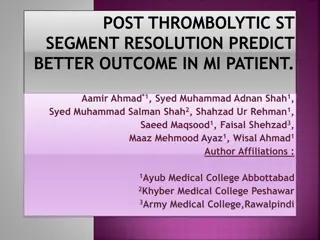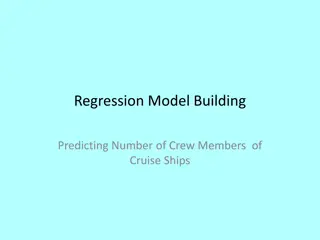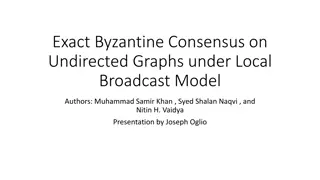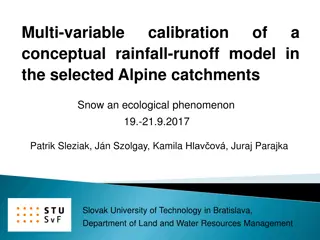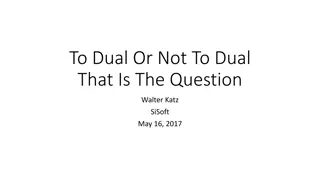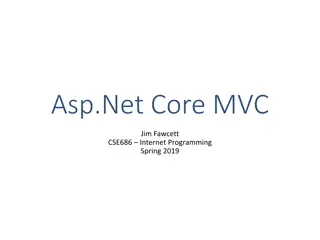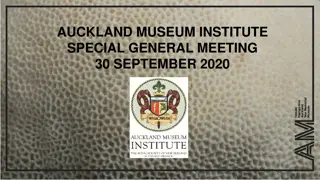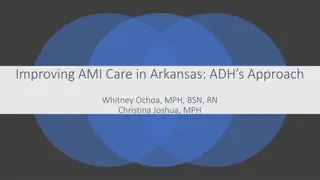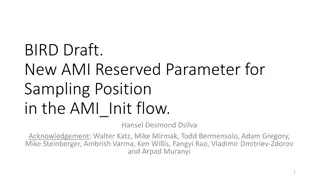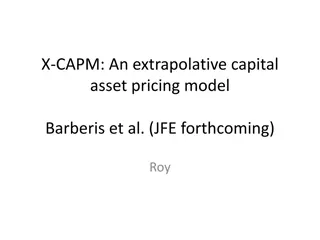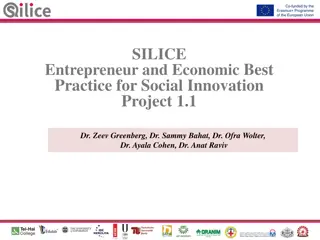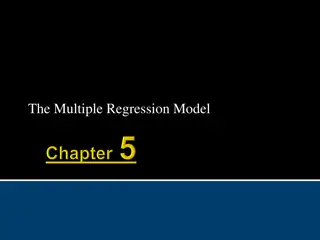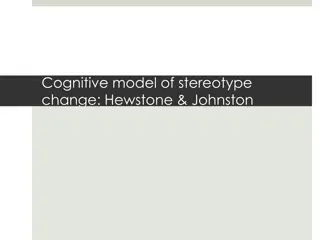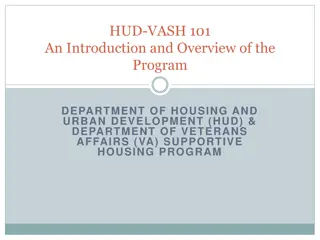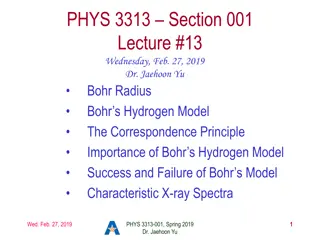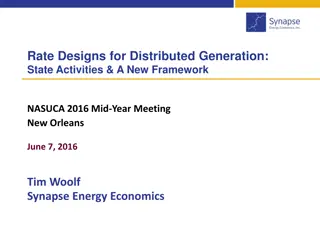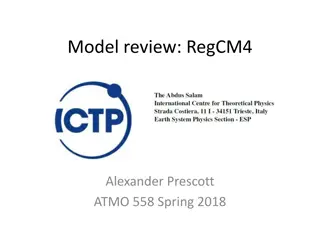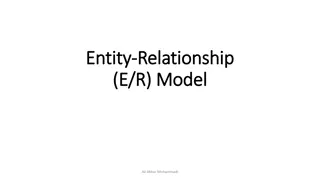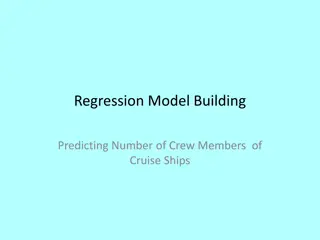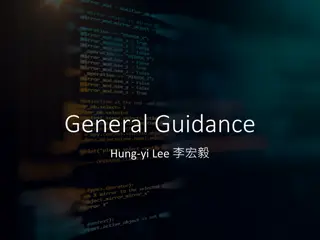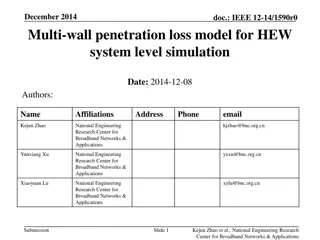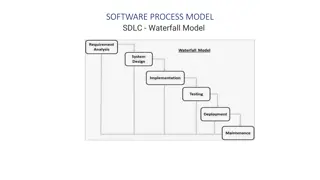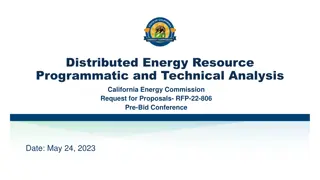Model Literasi Informasi dan Perumusan Masalah dalam Desain Komunikasi Visual
Materi ini membahas model literasi informasi, langkah-langkahnya, serta perumusan masalah dalam konteks Desain Komunikasi Visual. Mahasiswa akan mempelajari berbagai keterampilan dan langkah dalam mengolah informasi, merumuskan masalah, dan menentukan sudut pandang. Model-model literasi informasi se
1 views • 27 slides
Lewis Two-Sector Model: Sustaining Economic Growth Through Labor Transfer
Lewis Two-Sector Model, based on the assumption of surplus labor in agriculture, explains how transferring labor to the industrial sector boosts economic growth. The model highlights the shift from traditional to modern sectors, increased output, wages, and profits, and self-sustaining growth capabi
0 views • 10 slides
Building a Macrostructural Standalone Model for North Macedonia: Model Overview and Features
This project focuses on building a macrostructural standalone model for the economy of North Macedonia. The model layout includes a system overview, theory, functional forms, and features of the MFMSA_MKD. It covers various aspects such as the National Income Account, Fiscal Account, External Accoun
2 views • 23 slides
NAMI Family Support Group Model Overview
This content provides an insightful introduction to the NAMI family support group model, emphasizing the importance of having a structured model to guide facilitators and participants in achieving successful support group interactions. It highlights the need for a model to prevent negative group dyn
6 views • 23 slides
Comparison of FFR-guided PCI vs Angiography-guided PCI in AMI with Multivessel Disease: FRAME-AMI Trial
In patients with acute myocardial infarction (AMI) and multivessel coronary artery disease, this study aims to compare fractional flow reserve (FFR)-guided PCI with angiography-guided PCI for non-infarct-related artery lesions. The hypothesis is that selective PCI guided by FFR is superior to routin
2 views • 23 slides
Understanding Entity-Relationship Model in Database Systems
This article explores the Entity-Relationship (ER) model in database systems, covering topics like database design, ER model components, entities, attributes, key attributes, composite attributes, and multivalued attributes. The ER model provides a high-level data model to define data elements and r
0 views • 25 slides
Communication Models Overview
The Shannon-Weaver Model is based on the functioning of radio and telephone, with key parts being sender, channel, and receiver. It involves steps like information source, transmitter, channel, receiver, and destination. The model faces technical, semantic, and effectiveness problems. The Linear Mod
0 views • 8 slides
Understanding Atomic Structure: Electrons, Energy Levels, and Historical Models
The atomic model describes how electrons occupy energy levels or shells in an atom. These energy levels have specific capacities for electrons. The electronic structure of an atom is represented by numbers indicating electron distribution. Over time, scientists have developed atomic models based on
0 views • 5 slides
Understanding ROC Curves and Operating Points in Model Evaluation
In this informative content, Geoff Hulten discusses the significance of ROC curves and operating points in model evaluation. It emphasizes the importance of choosing the right model based on the costs of mistakes like in disease screening and spam filtering. The content explains how logistical regre
7 views • 11 slides
Understanding the OSI Model and Layered Tasks in Networking
The content highlights the OSI model and layered tasks in networking, explaining the functions of each layer in the OSI model such as Physical Layer, Data Link Layer, Network Layer, Transport Layer, Session Layer, Presentation Layer, and Application Layer. It also discusses the interaction between l
1 views • 41 slides
Regression Diagnostics for Model Evaluation
Regression diagnostics involve analyzing outlying observations, standardized residuals, model errors, and identifying influential cases to assess the quality of a regression model. This process helps in understanding the accuracy of the model predictions and identifying potential issues that may aff
1 views • 12 slides
TNMP Supply Chain Impacts Review and 3G Sunset Update
TNMP is facing challenges with the upcoming AT&T 3G network sunset and supply chain impacts, leading to a shortfall in meters for their NextGen rollout. Efforts are underway to mitigate the impact, including implementing manual meter reading processes. The company is working towards finding solution
0 views • 6 slides
East Point Electric System Update and Distribution Overview
Explore the latest updates and distribution strategy of the East Point Electric System for 2024-2025. Meet the dedicated staff members, learn about MEAG's power sourcing, and understand the distribution process to various substations. Discover the grid hardening initiative and the advanced AMI meter
0 views • 17 slides
Update on Technical Advisory Committee Meeting
Initial findings from the joint meeting of the Technical Advisory Committee and the Low Income Energy Assistance Program Subcommittee highlighted the potential benefits of leveraging government assistance programs for low-income rate payer initiatives. Preliminary data analysis revealed discrepancie
0 views • 22 slides
MFMSA_BIH Model Build Process Overview
This detailed process outlines the steps involved in preparing, building, and debugging a back-end programming model known as MFMSA_BIH. It covers activities such as data preparation, model building, equation estimation, assumption making, model compilation, and front-end adjustment. The iterative p
0 views • 10 slides
Thrombolytic ST Segment Resolution Predicts Better Outcome in MI Patients
Acute myocardial infarction (AMI), commonly known as a heart attack, occurs when blood flow to a part of the heart is blocked, leading to heart muscle injury. Resolution of ST segment elevation on electrocardiogram after thrombolytic therapy can predict final infarct size, left ventricular function,
0 views • 24 slides
Proposal for Radio Controlled Model Aircraft Site Development
To establish a working relationship for the development of a site suitable for radio-controlled model aircraft use, the proposal suggests local land ownership with oversight from a responsible agency. Collins Model Aviators is proposed as the host club, offering site owner liability insurance throug
0 views • 20 slides
UBU Performance Oversight Engagement Framework Overview
Providing an overview of the UBU Logic Model within the UBU Performance Oversight Engagement Framework, this session covers topics such as what a logic model is, best practice principles, getting started, components of the logic model, evidence & monitoring components, and next steps. The framework
0 views • 33 slides
Regression Model for Predicting Crew Size of Cruise Ships
A regression model was built to predict the number of crew members on cruise ships using potential predictor variables such as Age, Tonnage, Passenger Density, Cabins, and Length. The model showed high correlations among predictors, with Passengers and Cabins being particularly problematic. The full
0 views • 16 slides
Exact Byzantine Consensus on Undirected Graphs: Local Broadcast Model
This research focuses on achieving exact Byzantine consensus on undirected graphs under the local broadcast model, where communication is synchronous with known underlying graphs. The model reduces the power of Byzantine nodes and imposes connectivity requirements. The algorithm involves flooding va
0 views • 7 slides
Calibration of Multi-Variable Rainfall-Runoff Model Using Snow Data in Alpine Catchments
Explore the calibration of a conceptual rainfall-runoff model in Alpine catchments, focusing on the importance of incorporating snow data. The study assesses the benefits of using multi-objective approaches and additional datasets for model performance. Various aspects such as snow cover, groundwate
0 views • 16 slides
Understanding AMI Model Configurations and Flows in Signal Integrity
Delve into the complexities of AMI model configurations, exploring the implications of different settings on signal integrity simulations. Discover how Init_Returns_Impulse and GetWave_Exists parameters impact the behavior of AMI_GetWave functions, offering insights into valid and problematic flows
0 views • 10 slides
Understanding Asp.Net Core MVC - Building Web Applications with Model-View-Controller Pattern
Asp.Net Core MVC is a framework for building web applications based on the Model-View-Controller pattern. The model manages application data and constraints, views present application state, and controllers handle requests and actions on the data model. Learn about the MVC structure, life cycle, mod
0 views • 22 slides
Auckland Museum Institute Special General Meeting and Membership Initiative Presentation
The Auckland Museum Institute is hosting a Special General Meeting on 30th September 2020 to discuss proposed changes to its membership framework. The meeting will cover details of the combined Museum Membership initiative, alignment with the Strategic Plan, new membership benefits, and proposals fo
0 views • 27 slides
Enhancing AMI Care in Arkansas: ADH's Strategic Approach
Arkansas Department of Health (ADH) is focusing on improving acute myocardial infarction (AMI) care in Arkansas due to high mortality rates. They aim to develop effective strategies, implement timely interventions, and enhance data elements for better patient outcomes. Recognizing the urgent need, A
33 views • 29 slides
Enhancing IBIS-AMI Models for Improved Signal Sampling
Proposed by Hansel Desmond Dsilva and team, this draft suggests adding a new parameter in the AMI_Init flow to provide sampling position details, addressing a key gap in IBIS-AMI specifications. The proposal aims to enhance accuracy and consistency for silicon design across EDA tools, advocating for
0 views • 21 slides
Understanding X-CAPM: An Extrapolative Capital Asset Pricing Model
This paper discusses the X-CAPM model proposed by Barberis et al., which addresses the challenges posed by investors with extrapolative expectations. The model analytically solves a heterogeneous agents consumption-based model, simulates it, and matches various moments. It explores how rational inve
0 views • 23 slides
Innovation and Social Entrepreneurship Initiatives in Higher Education
This project focuses on establishing a leading center for promoting innovation and social entrepreneurship within higher education institutions. It aims to encourage students and staff to develop creative solutions for community challenges, expand social involvement, and foster sustainable positive
0 views • 13 slides
Principles of Econometrics: Multiple Regression Model Overview
Explore the key concepts of the Multiple Regression Model, including model specification, parameter estimation, hypothesis testing, and goodness-of-fit measurements. Assumptions and properties of the model are discussed, highlighting the relationship between variables and the econometric model. Vari
1 views • 31 slides
Cognitive Model of Stereotype Change: Three Models Explored
The Cognitive Model of Stereotype Change, as researched by Hewstone & Johnston, delves into three key models for altering stereotypical beliefs: the bookkeeping model, the conversion model, and the subtyping model. These models suggest strategies such as adding or removing features to shift stereoty
0 views • 58 slides
Overview of HUD-VASH Program for Homeless Veterans
HUD-VASH is a collaborative program between HUD and VA, offering permanent supportive housing to homeless veterans. Initially focused on mentally ill veterans, the program expanded in 2008 to provide housing stability and support services without treatment requirements. Eligibility criteria include
0 views • 30 slides
Understanding Bohr's Model of the Hydrogen Atom
Exploring the significance of Bohr's hydrogen model in physics, this lecture delves into the Bohr radius, the correspondence principle, and the success and limitations of his model. Discover how characteristic X-ray spectra contribute to our understanding of atomic structures, leading to the conclus
0 views • 14 slides
Rate Designs for Distributed Generation: State Activities & A New Framework
Explore recent activities in rate designs for distributed generation, including fixed charges and time-varying rates. Learn about residential AMI penetration and case studies. Discover a new framework for assessing DG policies based on comprehensive quantitative analysis.
0 views • 15 slides
Overview of RegCM4 Model Features
RegCM4 is a community model developed since the 1980s, with over 800 scientists contributing to its advancements. It features a fully compressible, rotating frame of reference and a limited area dynamical core based on the Penn State/NCAR Mesoscale Model 5 (MM5). The model uses hydrostatic and nonhy
0 views • 14 slides
Understanding Entity-Relationship Model in Databases
The Entity-Relationship Model (E/R Model) is a widely used conceptual data model proposed by Peter P. Chen. It provides a high-level description of the database system during the requirements collection stage. Entities represent things of independent existence, each described by a set of attributes.
0 views • 21 slides
Predicting Number of Crew Members on Cruise Ships Using Regression Model
This analysis involves building a regression model to predict the number of crew members on cruise ships. The dataset includes information on 158 cruise ships with potential predictor variables such as age, tonnage, passengers, length, cabins, and passenger density. The full model with 6 predictors
0 views • 15 slides
Understanding Model Bias and Optimization in Machine Learning
Learn about the concepts of model bias, loss on training data, and optimization issues in the context of machine learning. Discover strategies to address model bias, deal with large or small losses, and optimize models effectively to improve performance and accuracy. Gain insights into splitting tra
0 views • 29 slides
Analysis of Multi-Wall Penetration Loss Model for HEW System-Level Simulation
In December 2014, a multi-wall penetration loss model for HEW system-level simulation was proposed by Kejun Zhao, Yunxiang Xu, and Xiaoyuan Lu from the National Engineering Research Center for Broadband Networks & Applications. The model provides more accurate calculations of penetration loss in ind
0 views • 11 slides
Understanding the Waterfall Model in Software Development
The Waterfall Model is a linear-sequential life cycle model for software development. In this model, each phase must be completed before the next can begin, without overlaps. The sequential phases include Requirement Gathering, System Design, Implementation, Integration and Testing, Deployment, and
0 views • 7 slides
Distributed Energy Resource Programmatic and Technical Analysis RFP-22-806 Overview
This RFP by the California Energy Commission aims to support analysis of customer energy use data, including AMI data, for major utilities in California. The goal is to enhance understanding of energy load, impacts of decarbonization actions, and improve energy forecasts to guide policy recommendati
0 views • 27 slides
